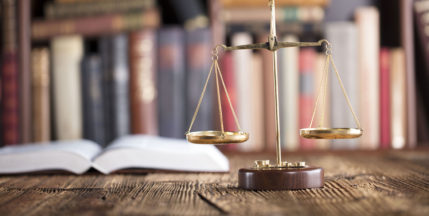 As technology continues to improve daily, and it does continue rapidly to do so, there has been a concern regarding how much its advancement may cost people their jobs in the future. Now, we have entered an era where not only basic audio recordings, but also voice-to-text translations have become widely available, officials have started to wonder, “Are court reporters still needed in the courtroom…are stenographers on their way out?
As technology continues to improve daily, and it does continue rapidly to do so, there has been a concern regarding how much its advancement may cost people their jobs in the future. Now, we have entered an era where not only basic audio recordings, but also voice-to-text translations have become widely available, officials have started to wonder, “Are court reporters still needed in the courtroom…are stenographers on their way out?
And while the idea may strike fear to many, it’s not something that can be ignored. It’s an important discussion. The same way the steam engine has completely revolutionized the way people travel. Similar questions have been raised, like whether e-books will replace printed materials. As new technologies are adopted, is there a need to be worried about the livelihoods of people such as court reporters?
Some States are Changing
This shift has been happening a lot in recent years. Massachusetts, among other states, have actually discontinued the employment of official court reporters in the Supreme Court since June 30, 2018. Instead, a court monitor or a freelance court reporter oversees an electronic recording. This change is a clear indication of the move towards human-less interaction.
Presence of Transcript Errors
There have been incidents of transcript errors found on electronic proceedings, and investigations have been conducted in order to pinpoint the cause. Among the errors, they include machines suddenly turning off during proceedings (which cause missed testimonies), incomplete testimonies, and large portions of proceedings not being captured properly.
This being said, it’s clear how machines can be unreliable during important moments. All the more important, when it is in the case of a recording a court proceeding. But, it’s not only about technical difficulties. Machines, unlike humans, are incapable of politely interrupting in order to clarify misunderstood or misspoken words. A stenographer aka court reporter can do so. That is a major difference. It’s difficult to predict how much the technology will improve over the years. But, it’s apparent that current technology is still very limited, and factors such as background noise, low audio, or unclear speech may cause inconsistencies in the court transcripts.
So What is the Future
Human intervention is a highly important aspect of effective court reporting. This is one thing that the courts can’t do without in order to come up with accurate transcriptions. A court reporter has a huge contribution to the overall quality of work, and they’re not only responsible for actions inside the courtroom. Other tasks include preparing transcripts, making sure the printed transcripts are accurate, arranging the schedules of trials and other court proceedings, filing completed court transcripts with the county clerk, and even performing clerk duties such as the maintenance of law libraries, among others.
So, are court reporters on their way out? While there have been significant changes in the current court setup, court reporters are far from being “phased out.” At least to this point. But the tides are turning and technology is not going away. The technology at present, while useful, is still widely unreliable, and inaccuracies can be detrimental to any court proceeding. However, it’s still interesting to witness how much the industry is changing and progressing.
CourtScribes.com is ready to serve you in your court reporting, videography services, interpreters, live-streaming, and video-to-text synchronization.
Although the majority of cities that offer CourtScribes’ services are in Florida, the company home base, other cities all across these United States that CourtScribes offers services in, are the following: Jacksonville, Miami, Tampa, Port St. Lucie, Fort Lauderdale, Cape Coral, Coral Springs, Clearwater, Palm Bay, Fort Myers, Weston, Sarasota, Orlando, St. Petersburg, Hialeah, Stuart, Hollywood, Naples, West Palm Beach, Boca Raton, Deerfield Beach, Jupiter, Key West, Coral Gables, Maryland, Manhattan, Buffalo, Washington DC, Baltimore, Bowie, Virginia, Frederick, Albany, New York, Brooklyn, Westchester, Gaithersberg, and Rockville.
